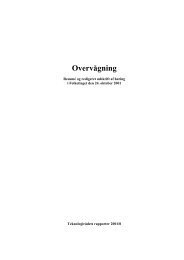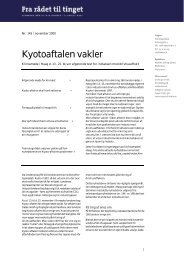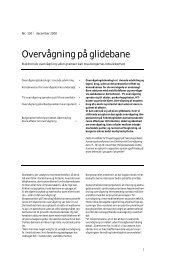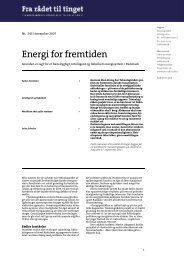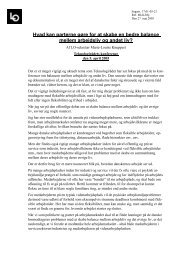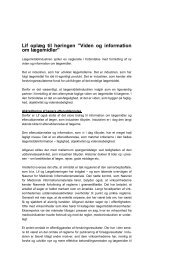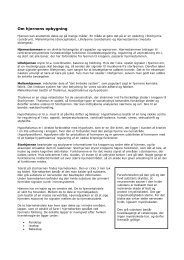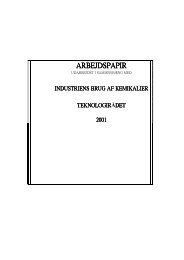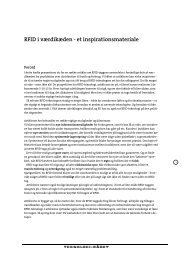Energi i fremtiden - globale, regionale og nationale ... - Teknologirådet
Energi i fremtiden - globale, regionale og nationale ... - Teknologirådet
Energi i fremtiden - globale, regionale og nationale ... - Teknologirådet
Create successful ePaper yourself
Turn your PDF publications into a flip-book with our unique Google optimized e-Paper software.
The Outlook reviews as follows the validity of the reserves as reported in different journals and the BP<br />
Statistical Review, confirming the unreliable nature of the reports as has long been emphasized by ASPO.<br />
The Outlook comments:<br />
“According to BP, reserves increased dramatically in the 1980s and 1990s, from 670 billions barrels at the<br />
end of 1960 to 1 147 billion barrels at the end of 2003 (Figure 7). But most of the increase occurred in OPEC<br />
countries, mainly in the Middle East, in the second half of the 1980s. Saudi Arabia and Kuwait revised<br />
their reserves upward by 50%, while Venezuelan reserves were boosted 57% by the inclusion of heavy oil<br />
in 1988. The United Arab Emirates and Iraq also recorded large upward revisions in that period. Total<br />
OPEC reserves jumped from 538 billion barrels in 1985 to 766 billion barrels in 1990. As a result, world oil<br />
reserves increased by more that 30%. This hike in OPEC countries’ estimates of their reserves was driven<br />
by negotiations at that time over production quotas, and had little to do with the actual discovery of new<br />
reserves. In fact, very little exploration activity was carried out in those countries at that time. Total reserves<br />
have hardly changed since the end of the 1980s.”<br />
Figure 7: Proven oil reserves in different regions according to BP Statistical Review (Figure 3.10 in WEO2004)<br />
Aleklett and Campbell describe the same thing in reference [4]: ”The main OPEC countries expropriated<br />
the holdings of the foreign companies during the 1970s, following the precedent of Iran’s action against<br />
BP in 1951. State enterprises were formed to produce the oil, inheriting the technical data and reserve<br />
estimates from the<br />
55



